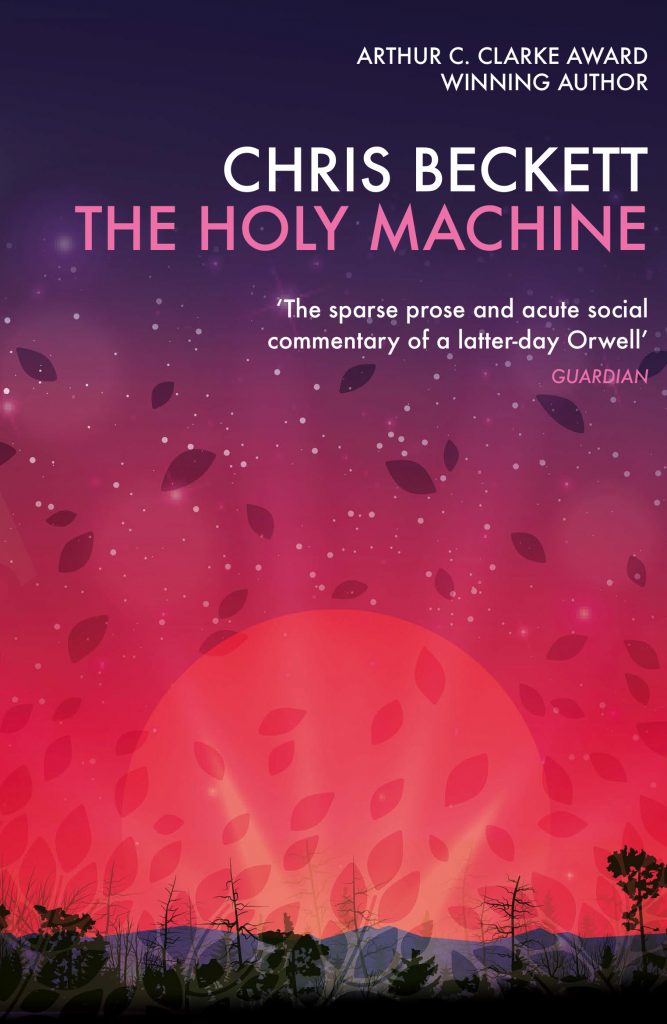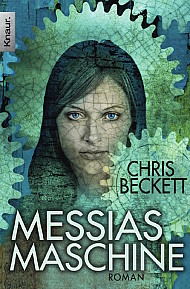 “A triumph.” Paul di Filippo, Asimov’s SF.
“A triumph.” Paul di Filippo, Asimov’s SF.
“…the sparse prose and acute social commentary of a latter-day Orwell…” Eric Brown, The Guardian.
“This isn’t just good sf – this is the kind of sf that should be written, that we ought to be out on the streets outside publishers demanding should be written…” – Gary Gibson
George Simling lives in Illyria, a city state founded by scientists and other refugees from the religious fundementalism that has swept the rest of the world. But Illyria is getting just as intolerant and narrow-minded as the countries that its inhabitants fled from.
George’s guilty secret is his obsession with Lucy, a syntec, a robot built for sex. When Lucy shows signs of self-awareness, George has two choices: to allow her to be ‘wiped clean’ (to have her emerging mind erased) or to escape with her to the outside world, the ‘Outlands’. But there she will have to pass herself off as human, or face certain destruction, because to Outlanders robots are demons, abominations, mockeries of God’s creation.
George sets out on a journey that leads him, through betrayal and madness, to the monastery of the Holy Machine, in a story that reflects on science and religion and the relationship between body and soul. (Published by Corvus).
Also available as an audio book.
 Buy from Amazon UK / Amazon US.
Buy from Amazon UK / Amazon US.
Kindle edition (UK)/ Kindle (US).
Messias-Maschine (The Holy Machine in German): on Amazon.de
US editions of The Holy Machine published by Wildside in 2004, and Cosmos in 2009 are no longer in print but are still available from some dealers.
- More on the history of this book here.
- More about short story precursors of the book here.
- ‘Even wimps have a story’ here. (About the character George Simling.)
Reviews:
“…A triumph.” – Paul Di Filippo, Asimov’s SF
“…this book is incredible…” – Tony Ballantyne, Interzone
“…An inspirational read, and a great antidote to the barrage of militaristic techno-thrillers that are saturating the market…” – Paul Raven, Velcro City Tourist Board
“This isn’t just good sf – this is the kind of sf that should be written, that we ought to be out on the streets outside publishers demanding should be written…” – Gary Gibson (author of Angel Stations, Against Gravity, Stealing Light).
” Religious fundamentalism has swept the world and the city state of Illyria is the last redoubt of rationalism, politically imposed and brutally draconian. Illyria uses robots, or syntecs, in place of foreign workers, and one of the many menial jobs imposed on the syntecs is prostitution. Translator George Simling, an introverted loner, falls in love with syntec Lucy, and when the state starts to erase the programs of robots who appear to be developing consciousness, George and Lucy escape to a neighbouring religious state on an odyssey destined to bring enlightenment and tragedy. In his depiction of Simling’s touching and hopeless love for Lucy, Beckett examines the interface between human and machine, rationalism and the religious impulse, with the spare prose and acute social commentary of a latter-day Orwell.” Eric Brown, The Guardian.
Review in Strange Horizons by Michael Levy. “…There are very few sureties in The Holy Machine. George, Lucy, Ruth and Marija all undergo profound changes, some of them quite unpleasant, but, by the end of this very fine novel, each character has achieved some measure of both agency and joy.”
Review in SFrevu by Gavin Pugh. “Highly recommended for those that think that science fiction can’t be literature or literature can’t be science fiction as well as to anyone that wonders what the future of humanity could hold.”
Review by ‘Libris Leonis’ (2012). “….one of the most thoughtful and intelligent novels I have read in a very long time”
Review by ‘Freethinking: a journal of popular culture’. “…I absolutely loved this book which reminded me why I loved SF… This is the book that you give to people who think they don’t like SF. It has a heart and a brain.”